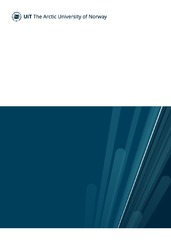Sorterius: Game-inspired App for Encouraging Outdoor Physical Activity for People with Intellectual Disabilities
Permanent link
https://hdl.handle.net/10037/21446View/
Source code (Unknown)
Playing Sorterius (QuickTime video)
(PDF)
Date
2021-05-15Type
Master thesisMastergradsoppgave
Author
Stellander, MagnusAbstract
People with intellectual disabilities have difficulties in reaching the World Health Organization's (WHO) suggested level of physical activity. Previous research shows that participating in physical activities often is related to self-efficacy in a physical activity setting and personal motivation. As physical activity has significant effects on physical and mental health, this thesis aimed to develop a mobile application that could help people with intellectual disabilities be more physically active.
In the process of creating an encouraging and user-friendly mobile application, this project includes literature reviews, meetings with experts in the field, discussions with special education teachers and teachers working with people with intellectual disability, and the author's own experience with this user group. The project relies on guidelines and theory to create a user interface to fit people with intellectual disabilities.
This thesis presents a cross-platform mobile application that combines the digital and real world. Using augmented reality, players walk around in the real world looking after digital garbage. As they walk, they will find garbage on the ground and get the option of sorting the garbage in the correct garbage bins. The game's main objective is to look for garbage and throw it in the correct garbage bin. As users progress throughout the game, they earn stars based on their step count while playing the game. Together with family members or assistants, they can add weekly physical activity goals and earn special rewards created by family members or assistants.
Usability testing is mainly done on special education teachers, social workers, psychologist, and researchers working with people with intellectual disabilities. It revealed that creating a mobile application focusing on everyday life scenarios can have a potential value for the targeted user group. However, testing also showed that using augmented reality can be challenging. Long-term testing on individuals with an intellectual disability will start in the upcoming weeks in a study conducted by the University Hospital of North Norway (UNN), in collaboration with UiT The Arctic University of Norway.
Publisher
UiT Norges arktiske universitetUiT The Arctic University of Norway
Metadata
Show full item recordCollections
Copyright 2021 The Author(s)
The following license file are associated with this item:


 English
English norsk
norsk
